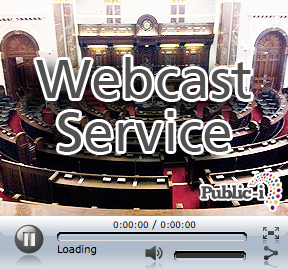Ramadan advice for diabetics
Birmingham diabetics have been urged not to put their health at risk by unnecessarily fasting during the forthcoming month of Ramadan.
Throughout Ramadan (2014: 28 June to 27 July) most Muslims are required to refrain from eating and drinking during daylight hours.
But diabetics are exempt from this if fasting would put their health at risk. (Speak to your Imam for more information)
Going without food for long periods can affect blood sugar levels, which can be dangerous for people with diabetes.
And diabetics who do choose to fast are strongly advised to seek advice from a health professional before Ramadan.
Birmingham’s new Cabinet Member for Health and Wellbeing, Cllr John Cotton, said: “The important thing to stress is that people with diabetes do not have to fast and they should not do so if it will put their health at risk.
“Anyone with complications associated with diabetes, such as poor vision, heart or kidney disease, runs a high risk of aggravating these conditions and should seriously consider not fasting.
“That said, if you have diabetes and still intend to fast, you should speak to a healthcare professional, so that a medical assessment can be undertaken and appropriate advice can be provided.”
For people with diabetes taking certain tablets and/or insulin, fasting carries the risk of developing a low blood sugar level. It is also possible that people could develop high blood glucose levels during a fast if they don't take their medication or if they are less physically active than normal, which could lead to a life threatening condition called diabetic ketoacidosis (DKA).
If people with diabetes have any damage to eyes, kidneys, heart or nerves in the hands and feet, it would be advisable not to fast.
If, after consulting with your doctor, you decide to fast:
- If you are taking insulin, you will require less insulin before the start of the fast
- The type of insulin may also need changing from your usual type
- Pre-mixed insulin is not recommended during fasting
- Before starting the fast, you should include more slowly absorbed food (low GI), such as rice, pitta bread and dhal, in your meal, along with fruit and vegetables
- Check your blood glucose levels more often than you normally would
- When you break the fast, have only small quantities of food, and avoid only eating sweet or fatty foods
- Try to eat just before sunrise, when you commence the next day’s fast
- At the end of fasting you should drink plenty of sugar-free and decaffeinated fluids to avoid being dehydrated.
Ramadan prayer times for Birmingham: http://www.salahtimes.com/uk/birmingham/ramadan
Fasting during Ramadan factsheet
Factsheet from Diabetes UK about fasting and managing your diabetes during Ramadan, developed in partnership with the Muslim Council of Britain's Diabetes Advisory Group: http://www.diabetes.org.uk/Documents/Guide%20to%20diabetes/Ramadan/fasting-ramadan-factsheet-english-0514.pdf
The video at the top of the page is available in three additional languages:
Bengali http://youtu.be/Gv7x_EZP_zE
Punjabi http://youtu.be/p_gvNtlGnDA




